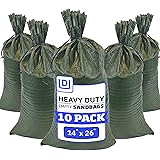Hey there! Today, I’m sharing some thoughts on preparing for what might come after a major disaster, especially when it comes to the economy. We’ve faced some crazy times lately, and it’s crucial we equip ourselves for a potential economic downturn. Let’s break it down into five key areas that I’ve found essential to focus on.
Building an Emergency Budget
Understanding Your Current Finances
The first step in building an emergency budget is taking a good, hard look at your current finances. Yeah, I know—it’s not the most exciting task, but trust me, it’s necessary. Take some time to list out all your income sources and your regular expenses. This will give you a clear picture of where you stand.
After mapping out your finances, prioritize your expenses. Rent, utilities, food—these are non-negotiables. On the other hand, those streaming subscriptions? Maybe it’s time to pause those bad boys until things calm down. Knowing what’s essential helps streamline your budget in an emergency.
Finally, don’t forget to factor in a cushion for unexpected costs. Life throws curveballs at us all the time—whether it’s a medical bill or a surprise repair. By planning for some wiggle room in your budget, you’ll feel more secure when the unexpected hits.
Creating a Savings Plan
Once you’ve figured out your budget, it’s time to think about savings. Building a safety net is crucial when preparing for a recession. Start small—aim to save at least a little each paycheck. Even $20 can add up over time. Put it in a separate account so you’re not tempted to dip into it.
I’ve found that setting specific savings goals helps tremendously. Maybe you want to save enough for three months’ worth of expenses or have a specific target amount for emergencies. Whatever it is, having that goal can keep you motivated, especially when it requires sacrifice in your spending habits.
Another tip? Automate your savings. If you have a system that pulls a set amount into savings each month, you’ll steadily build up your emergency fund without even thinking about it. Trust me, once you see that balance grow, it’ll bring you peace of mind!
Staying Flexible and Adaptive
As the economy changes, so might your financial situation. Maybe you or someone in your household faces a job loss, or your main source of income takes a hit. You’ll want to stay flexible in how you manage your budget and savings. Being adaptive means regularly reviewing your finances and adjusting as needed.
== > What if ... Get a FREE Subscription to PREPARE
For instance, if it turns out one of your living expenses becomes negotiable—say, moving to a less expensive place or negotiating your bills—don’t be afraid to explore those options. This responsiveness can help you stay afloat no matter how rocky the waters get.
Lastly, don’t be afraid to lean on your community. Sometimes sharing burdens can lead to innovative solutions. Maybe you can trade skills or services with your neighbors, or even join resources for bigger needs. Being part of a supportive community can help us all weather the storm together.
Diversifying Income Streams
Exploring Side Hustles
In my journey, I’ve learned the value of not putting all my eggs in one basket. If you’re relying solely on one income source, you might be setting yourself up for trouble. That’s why exploring side hustles can be a great idea. There are tons of options, whether it’s freelancing, selling handmade goods online, or even driving for a rideshare service.
Finding a side gig that aligns with your passions not only helps financially but can also be super fulfilling. Plus, it’s a great way to connect with new people and expand your horizons. Seriously, you’d be surprised at how many people are making decent money just doing what they love!
Another thing to keep in mind is your existing skills. Chances are, you’ve got something unique to offer. Maybe you’re great at graphic design or have a knack for social media. These skills can easily transition into additional income streams. Just get creative!
Investing in Your Skills
Building a solid financial future isn’t just about saving—it’s also about investing in yourself. By improving your skill set or learning new ones, you can enhance your job security and open doors to new opportunities. Consider online courses or workshops in your field or even in entirely new areas that interest you.
Another approach is networking. Getting to know people in various industries can often lead to opportunities that you might not have uncovered otherwise. I always try to attend local meetups or webinars, and I can’t stress enough how beneficial they can be!
Plus, don’t forget about mentorship. Seek out someone whose career you admire. Their guidance and wisdom can help you navigate your path and identify opportunities for growth.
Establishing Passive Income Sources
Passive income can be a game changer, especially during tough economic times. This involves finding ways to earn money with little effort on an ongoing basis. Real estate can be a prime example, but you don’t have to be a millionaire to start something like investing in real estate crowdfunding.
Additionally, think about creating digital products or content that you can sell over and over, like e-books or online courses. Once you’ve put in the effort to create, those products can provide income for years.
Exploring these avenues can ease financial stress and offer greater financial security, making it easier to weather economic storms.
Stocking Up on Resources
Preparing Physical Supplies
In my opinion, having physical resources on hand can be invaluable in a disaster situation. This includes food, water, and other essential supplies. I always aim to keep a well-stocked pantry—think canned goods, rice, and pasta that can last a while—just in case the unexpected happens.
Don’t forget the importance of cleanliness and health. Stock up on first aid supplies, personal hygiene products, and any necessary medications. Establishing a stock of these items not only prepares you for emergencies but also lessens the stress of running out during a crisis.
Get Preparedness and Self-Reliance Tips. Subscribe Now!
When it comes to physical supplies, I learned to be smart about storage. Use airtight containers, and consider space-saving techniques so you can maximize your storage without cluttering your space. Organization makes all the difference!
Exploring Digital Tools
In this digital age, having the right tools can make a huge difference in how well you prepare for a potential economic downturn. Whether it’s financial management software or apps that help you track your spending, using these resources can help you stay ahead of the curve.
I’ve found budgeting apps to be especially useful. They keep all my financial information in one place and can send reminders about bills. This little nudge can help avoid late fees and keep your budget on point during stressful times.
Moreover, leverage online resources for community support and networking. Forums and social media groups can provide tips, resources, and even emotional encouragement from people in similar situations.
Mindset Preparation
Lastly, let’s talk about mental resilience. It’s easy to feel overwhelmed by the challenges of preparing for uncertain times. That’s why cultivating a positive mindset is so important. Practicing mindfulness or even simple stress relief techniques can assist you significantly.
Consider routines that help keep your mind clear. Whether it’s daily journaling or regular exercise, finding methods that work for you can help maintain your mental well-being. To me, it’s about balance; you can’t ignore the mental aspect while worrying about the financial one.
And don’t forget about leaning on your support system! Friends and family can help lift you up during tough times. Don’t hesitate to talk to them; sometimes, just sharing can lighten the load.
Staying Informed
Following Economic Trends
Keeping an eye on the news can be daunting, but being informed about economic trends is crucial. Knowing what’s happening in the economy can give you insights on how to adjust your finances and savings strategies. Subscribing to financial newsletters or podcasts can provide solid information tailored to the average person.
I also recommend checking reputable financial websites regularly. Understanding indicators such as unemployment rates, inflation, and governmental policies can prepare you for the changes that might affect your budget.
Remember, knowledge is power! The more informed you are, the better equipped you’ll be to make decisions that can safeguard your financial future.
Understanding Local Resources
Your community undoubtedly has resources to draw upon during hard times, and knowing what’s available can help you and your loved ones. Whether it’s food banks, government assistance programs, or local support groups, it’s beneficial to familiarize yourself with these resources well before you need them.
Connecting with local financial aid groups or community centers can open up additional avenues for support. Often, these organizations can provide guidance on managing debt or leading you towards larger financial literacy resources.
Having this knowledge in your back pocket can save you from a lot of stress later on. Partnerships with your community can create a safety net when you need it most.
Engaging in Community Discussions
Participating in community discussions about the economy and personal finance can greatly benefit your knowledge base. Engage in local meetups or online forums to share insights and learn from others’ experiences. The exchange of ideas can be incredibly enlightening!
Additionally, consider volunteering. Not only can you give back to your community, but you’ll also build connections that could be valuable down the line. Sometimes, the people you meet might help point you toward opportunities you never considered.
Remember, we’re all in this together. The more we talk about these challenges and solutions, the stronger we become as a community.
FAQ
1. What is the first thing I should do to prepare for a recession?
The first step is to build an emergency budget. This involves understanding your current finances, prioritizing expenses, and creating a safety net for unexpected costs.
2. How can I diversify my income streams?
You can explore side hustles based on your skills and interests. Additionally, consider investing in your skills through courses or networking, and look into passive income opportunities.
3. What physical resources should I stock up on?
It’s smart to have a well-stocked pantry, including food and hygiene supplies. First aid items and any necessary medication should also be part of your preparation.
4. How do I stay informed about economic trends?
Follow reputable financial news sources, subscribe to newsletters, and listen to podcasts that focus on economic issues and personal finance.
5. How can I create a positive mindset during uncertain times?
Practice mindfulness, develop routines that keep your mind clear, and lean on your support system of friends and family to help you manage stress.






